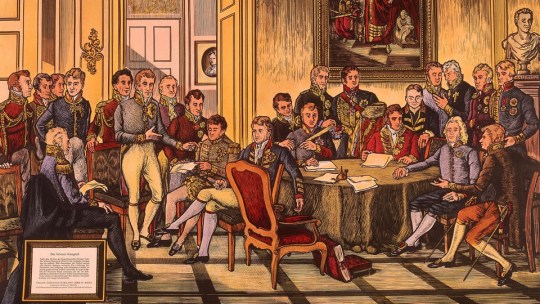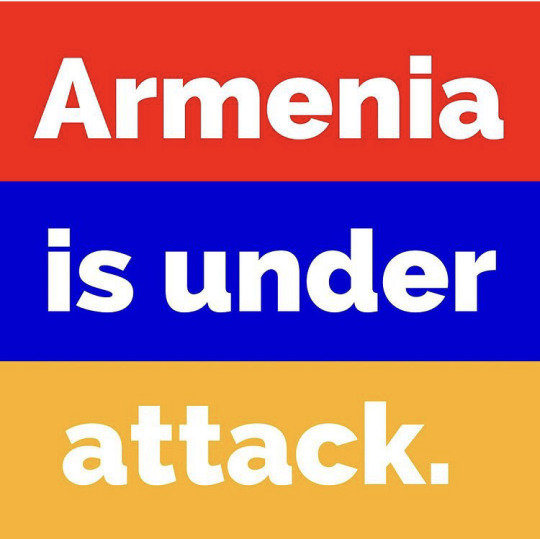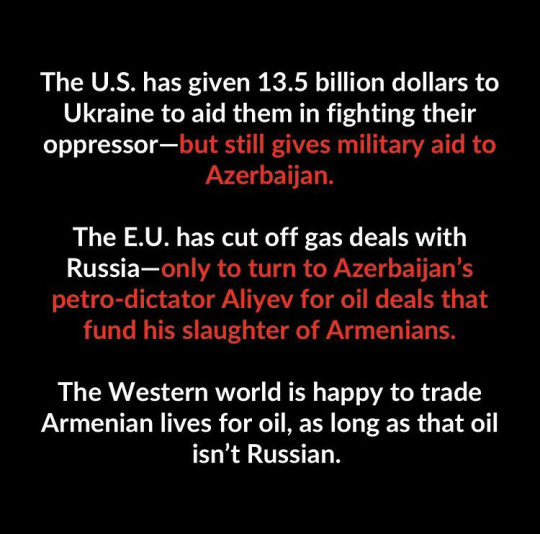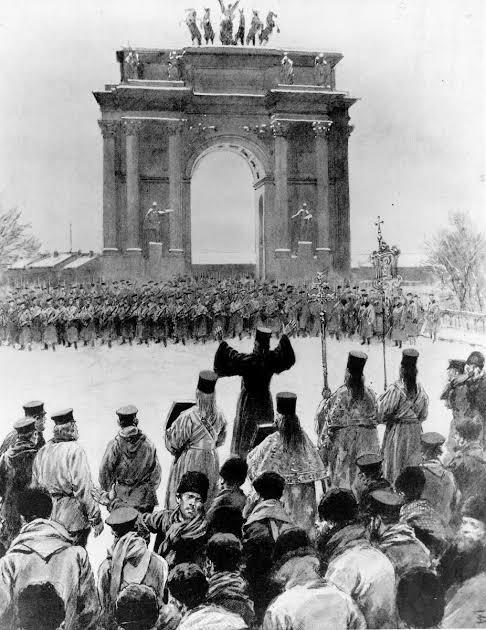#history of international relations
Text
تطور فكرة الامبراطورية في العلاقات الدولية بين الواقع والإفتراض
تطور فكرة الامبراطورية في العلاقات الدولية بين الواقع والإفتراض
تطور فكرة الامبراطورية في العلاقات الدولية بين الواقع والإفتراض
الكاتب : Bensaadoune Liamine
الملخص:
تعود فكرة الإمبراطورية إلى العصر التاريخي القديم، كمفهوم سياسي للحكم واكتساب عوامل ومكوّنات القوة والبقاء، ويرتبط ذلك بالنشاط الإنساني الاقتصادي والاجتماعي، استهدفت في مكوّناتها حيازة القوة وتعظيمها، والتوسع الجغرافي عن طريق الإخضاع…

View On WordPress
#Empire#history of international relations#Power#القوة#الواقع#الإمبراطورية#الافتراض#العلاقات الدولية
0 notes
Text
تطور فكرة الامبراطورية في العلاقات الدولية بين الواقع والإفتراض
تطور فكرة الامبراطورية في العلاقات الدولية بين الواقع والإفتراض
تطور فكرة الامبراطورية في العلاقات الدولية بين الواقع والإفتراض
الكاتب : Bensaadoune Liamine
الملخص:
تعود فكرة الإمبراطورية إلى العصر التاريخي القديم، كمفهوم سياسي للحكم واكتساب عوامل ومكوّنات القوة والبقاء، ويرتبط ذلك بالنشاط الإنساني الاقتصادي والاجتماعي، استهدفت في مكوّناتها حيازة القوة وتعظيمها، والتوسع الجغرافي عن طريق الإخضاع…

View On WordPress
#Empire#history of international relations#Power#القوة#الواقع#الإمبراطورية#الافتراض#العلاقات الدولية
0 notes
Text
WHERE YOU CAN MAKE DONATIONS FOR ARMENIA
kooyrigs: They’ve been carrying out on-ground projects to help Syunik and Artsakh communities ever since the 2020 war in Armenia.
All for Armenia
Miaseen
Center for Truth and Justice : Established in November 2020 in response to the Nagorno-Karabakh war. Team of lawyers and legal professionals that preserve evidence and make it accessible for current or future proceedings, whether in Armenia or abroad.
#signal boost#important#law#armenia#artsakh#stop azerbaijani aggression#politics#history#international affairs#international relations#war#lawblr#british politics#uk politics#current events#news#world news#help armenia#queen elizabeth#british royal family#kate middleton#prince william#princess charlotte#iran#social justice#halloween
1K notes
·
View notes
Note
i feel like keith could absolutely terrify normal/rational people (hunk, lance) by coming up with the weirdest most complicated way to fix the most simple problem. shiro is very used to it so he isn’t scared anymore
i think keith and pidge are two sides of the same raccoon-macgyver-packrat coin, but whereas pidge is a #WomenInSTEM👩🔬, keith is an unhinged liberal arts major
#I think keith plays the Oregon trail and wins every time#I still maintain that keith is the sole humanities major amid a sea of stem majors#allura is part of the larger liberal arts pool (she’s like international relations or something)#Keith is like a history major or maybe a Korean/Asian studies major#ask#anonymous#katiecanons#I guess
82 notes
·
View notes
Text
three shots in trying to figure out what bradley was planning on doing with his poli sci degree if getting in the navy didn’t pan out
#(as someone who also has a poli sci degree)#he does nawt have the personality of a politician AT ALL#usually w psci majors its either public service or a predecessor for law school#which i can see more but like. bradley would have gotten one semester in and realized he fucking hates it i feel like 😭#mr ��i have to raise my voice when i argue so they dont notice it shaking’. hes kinda just like me#ik OCS requires at least a bachelors degree but poli sci is so random to make yourself look like a better candidate LMFAOOOO#i really think he was planning on law school as a back up for the navy and probably had a minor in like history or something#he would be the type to take military history and international relations classes.#in my head hes a psci major w a history minor that takes social work classes on the side#which is partially my own self projection but also i think he would make a good social worker with the way he grew up#anyways. sorry for the rambling in the tags (not really)#Hi if you made it all the way down here#i love bradley so much. can you tell.#carolcore
27 notes
·
View notes
Note
I’m not quite sure how to word this but I’ve been digging into “lesbian 101” books like Stone Butch Blues, are there are books you think every gay man should read?
hmm. my mind immediately goes to The Velvet Rage, which is a book written by a gay therapist about gay male specific trauma/coping/experiences. Do i think the book is often very white/rich centric in its experiences? Yea, but I also feel what it says about the coping behaviors and experiences that are unique to gay men can provide insight for all kinds of queer men, and have certainly helped me understand the experiences of cis gay men (but also how those experience broach into trans gay male experiences). I think it offers a very important view into gay male culture, including hyper-sexuality, fatphobia, fag-bashing, and more.
Another book that I think all queers should read is Michael Warner's The Trouble with Normal. I have some gripes with Warner himself, but this book is extremely solid in the ways it calls out the LGBTQ movement/organizations into selling out to cis-heteronormativity, social purity, and overall dessexualization of the movement. If anyone needs to read this book, it's definitely the catty gay men who think they are better than other gays for hating "weird" queers.
Those r just two books that come to mind ^-^
#muertoresponds#lgbt history#i didnt finish the velvet rage but i got thru like 80% of it#yes it leaves out a lot of marginalized populations but again i think it offers great insight into a section of our community#whos voice largely overwhelms our own#and that also doesnt men that marginalized gay men will not relate to some aspects of the book as i did to a lot of it#warners book is great because it talks about projected and internalized shame
89 notes
·
View notes
Text
What US Would Be Like if America Lost the Revolution
Imagining an alternate reality where the American Revolution was lost and the United States did not gain independence is a fascinating exercise in historical speculation. While it is impossible to predict with certainty how events would have unfolded, we can explore some possible scenarios.

Continued British Rule: If the American Revolution failed, the American colonies would have remained under British rule. This would have meant that the British Crown would have continued to govern the American territories, and the American colonists would have been subject to British laws, taxes, and regulations.
Limited Autonomy: It is possible that the British government, recognizing the discontent among the colonists, might have granted them some limited autonomy or representation in the British Parliament. However, it is unlikely that the colonies would have enjoyed the same degree of self-governance as they eventually achieved through independence.
Economic Implications: Without independence, the American colonies would have remained part of the British mercantile system. This system placed restrictions on colonial trade and favored British interests. As a result, the American economy may have been more dependent on British trade, limiting opportunities for domestic industrialization and economic growth.
Slavery: The issue of slavery, which played a significant role in the lead-up to the American Revolution, would have likely continued. The British Empire abolished slavery in 1833, so it is possible that slavery may have been abolished earlier in the American colonies under British rule. However, this would have varied depending on the specific circumstances and pressures within each colony.
Manifest Destiny and Westward Expansion: The idea of Manifest Destiny, which drove westward expansion and the growth of the United States throughout the 19th century, would not have emerged in the same way. The British Empire had a different approach to territorial expansion, and it is uncertain how it would have shaped the development of the American territories.
International Relations: The geopolitical landscape would have been vastly different. Without the United States as a separate nation, the balance of power in North America and the world would have shifted. Other European powers, such as France and Spain, may have had a greater influence in the American territories.
Alternative Paths: It is important to note that the desire for independence was not limited to the American colonies alone. Other regions of the world, inspired by the American Revolution, also sought self-governance and independence. The success or failure of the American Revolution may have influenced these movements in different ways.
Remember, these scenarios are purely speculative, and countless factors could have shaped the course of history in the absence of an American victory in the Revolution. The development of the United States and the world as we know it today would have been dramatically different.
#Alternate History#American Revolution#Historical Speculation#What If#Hypothetical Scenario#British Rule#Independence#Geopolitics#Colonial America#Manifest Destiny#Slavery#International Relations#Counterfactual History#British Empire#Impact of Defeat#today on tumblr#deep thoughts#deep thinking
13 notes
·
View notes
Text
not me, a 26-year-old woman, having nearly a full on breakdown when my mom asks if any of my dad's history books are special to me. she didn't mean anything by it, and i didn't think when i sat down and started to look through them but ugh, i nearly started sobbing and felt like i couldn't breathe at the idea of getting rid of any of them. it's fine, mom, if i can't get rid of any by the time i move out, i'll just take them all.
#· ooc » entranced by navy burnout silk velvet#i have a few in my room already because i've read them and was like ah yes dad's and good book#but the rest downstairs i haven't made it through yet so i just sat there staring like#how could i pick out any of them#dad bought and kept them for some reason#how could i... how could i just toss them back into the world without seeing why?#ngl crying right now in my room even thinking about it#he already gave me a few of his international relations books before he died when he was trying to sort through his books to clear them out#the rest weren't that good and he didn't need them#but he kept all of these history books#i can't... i don't even know if i'll be able to read them all but i can't#it's almost been a year and i can't
6 notes
·
View notes
Text
you guys! :)
#I went to an academic advisor bc it’s not every day you get a second chance at your future and I don’t wanna fuck it up#so I was telling her what I was into like international law and foreign policy and relations#and she was like you are actually a much better fit for the international studies program and she planned it out with me and YOU GUYS#IM SO EXCITED IM LOOKING AT THESE POLISCI AND INTERNATIONAL RELATIONS AND HISTORY CLASSES#IVE NEVER BEEN THIS EXCITED ABOUT SOMETHING IM DOING IN YEARS#my mom is still upset she yelled at me last night too but it doesn’t matter. I’m so excited :))))))#I’m so sorry that all my posts now are about me and not sports but you guys are family to me I just love to share with you guys<3
7 notes
·
View notes
Text
The Mongols may not have troubled many modern museum curators with their art or left fine buildings to admire but they did leave a lasting legacy in other ways. Perhaps their greatest effect on world culture was to make the first serious connections between the East and West. The Mongol Empire, the largest contiguous land empire up to that point, stretched across one-fifth of the globe and their soldiers were obliged to fight Teutonic knights at one end while at the other they faced samurai warriors, neither of which enemy had any notion of the other's existence. Hitherto, the Chinese and Europeans had each viewed the other's lands as a semi-mythical place of monsters. As ambassadors, missionaries, merchants, and travellers like Marco Polo (1254-1324) were encouraged to freely cross Asia, so contact increased, and ideas and religions were spread. Gunpowder, paper, printing, and the compass all became familiar in Europe. The Mongols spread ideas in cuisine, too, such as making their sulen (shulen) broth-come-stew a popular dish across Asia even today. There were, alas, less advantageous consequences, like the Black Death (1347-1352), first transferred from a pocket of remote China to the Black Sea and from there to Venice and the rest of Europe. In Mongolia, though, the empire is remembered fondly as a golden era and Genghis Khan, the starter of it all, continues to be honoured with regular ceremonies in the Mongolian capital of Ulaanbaatar.
— Mongol Empire - World History Encyclopedia
#mark cartwright#history#military history#warfare#politics#international relations#trade#religion#travel#technology#invention#culinary history#food and drink#disease#mongolia#mongol empire#marco polo#genghis khan#sülen#black death#bubonic plague
11 notes
·
View notes
Text
Every time I log onto social media at the moment, I see celebrities and influencers — who have never picked up a book on the Occupied Territories in their life, by the way — sharing their banal, useless take on Hamas and Israel. And every time that happens, I am reminded of that moment in Bo Burnham’s Inside where he says, “Can any single person shut the fuck up about any singlе thing for an hour? You know, is that possible?”
#like honestly#i did have a degree (two!) in history and international relations with a focus on security and even I know when to shut the fuck up#grumble grumble
9 notes
·
View notes
Text
Aware this is ground we've covered time and again, but there's this overarching issue with how a lot of Europeans--especially western Europeans, from what I've personally seen--talk about problems in the U.S. where they adopt a viewpoint which has this almost Lewis Carroll-like quality; [x assertion about obes*ty/laziness/ignorance/education/politics/etc.] ought to makes sense, and it presents as soundly leftist, but when you get right down to it is actually deeply fallacious and functionally very conservative (often with much more sinister overtones undertones).
The kinds of complaints and criticisms I'm talking about are almost always big ones, things which apply to or affect significant portions of the country's population. They also frequently disproportionately hurt lower classes and oppressed groups. Yet instead of looking for root causes or trying to understand the problem/previous attempts to solve it in any meaningful way, they put both the onus and blame on individuals.
As common as this beloved conservative tactic is among many ostensibly leftist Europeans, it's honestly hard for me to feel offended for a few reasons:
One, because I--like many U.S. citizens--have unlearned (and continue to unlearn) the nationalism shoved down our throats in school and also think this country sucks, partly because I am subjected to just how bad it sucks every single day.
Two, because the hypocrisy of a person simultaneously preaching about ignorance and demonstrating their own is hard to take seriously.
Three, because the amount of arrogance required to believe that if one's own country was subjected to the same cultural, political, and practical realities as the U.S., they and the other citizens of their own country wouldn't fall prey to the exact same problems they're mocking--wouldn't see similar rates of poor health, would simply Not Be Ignorant, would out-excellent math and transcend victimhood (presumably through their inherent genetic? superiority)--is mind-blowing. In fact, it's difficult to keep calling it "arrogance" instead of ethnocentrism. Plenty would argue that's still too charitable a term.
And four, because a lot of those who do this most consistently and loudly literally come from the very countries which colonized the Americas and which continue to hold and act on the ideologies which not only shape the U.S., but serve as the foundation for literally every horrible thing they're criticizing and/or complaining about.
#posts i actually wrote#tw obesity mention#tw fatphobia mention#politics#u.s. politics#imperialism#history#global politics#global relations#international relations
11 notes
·
View notes
Text





A day past the launching of the attack and by September 14th we have 105 soldier and civilian deaths confirmed already.
MOST IMPORTANT MENTIONED ORGANIZATIONS
Kooyrigs
Armenian Wounded Heroes Fund
source. columbiaarmenians
#important#signal boost#boost#armenia#history#uk politics#british politics#war#lawblr#law#stop azerbaijani aggression#politics#international relations#europe#current events#news#world news#help armenia#queen elizabeth#british royal family#kate middleton#prince william#iran#social justice#halloween
688 notes
·
View notes
Text
The Novelty of Russian Social Conservatism
Heraclitus' line "No man ever steps in the same river twice, for it's not the same river and he's not the same man" is just as true when it comes to nations, religions and their traditions. Here I'm going to go into how this is the case for Russian conservativism.
One of the key concepts introduced by The Moralist International is that of 'conservative aggiornamento.' This makes use of an Italian phrase used by the Second Vatican Council essentially meaning "modernisation of religious tradition." In the Catholic context, this meant things like conducting services in common language (rather than Latin), ecumenism, tolerating religious freedom, and things generally considered "liberal." In the Russian Orthodox case however, the aggiornamento is decisively conservative.
The use of this phrase is to make clear that appeals to traditionalism are not simple returns to a real past, but very much updates of "tradition" for a modern world. It is to emphasise "the novelty of Russian social conservatism."
As a parallel, Islamic fundamentalism in the form of Sunni Wahhabism is often seen as ultra-traditionalist, as "mediaeval" even. In reality, Wahhabism springs from the mid-18th century. The ultra-reactionary ideology of al Qaeda, Qutbism, is from the 1960s. It harkens back to the past, but is very much from the present.
Similarly, the Russian Orthodox's foray into social debates and international politics is largely only twenty or so years old. In Tsarist Russia, an expansion of the church’s influence beyond its spiritual competence was undesired, and internally strong monastic currents stood for a “principled lack of interest in the world." The church has traditionally been highly ascetic, with a focus on monasticism, to the point of being described as "anti-family."
“The man who marries does well, but the one who doesn’t marry does even better"
1 Corinthians 7:38.
There were of course exceptions to this: Father Gapon helped kickstart the 1905 Revolution for example, but really that is the exception that proves the rule.

During the Soviet era, the religious authorities were heavily suppressed and censored, with little room to influence or debate social policy. Even following the collapse of the Soviet Union, it took some time for the Orthodox Church to find its own footing in social politics.
Through the 1990s, with reinvigorated contact with the Catholic and Protestant worlds (both of which had been politically active in democracy for decades), the Russian Orthodox Church began to develop a more "modern" and active socially politically role.
In Orthodox Russia, you can see the defence of "traditional values" - such as in the opposition to domestic violence legislation - as being cast in terms of human rights and "freedom". The Orthodox Church said of the domestic violence bill:
It has an obvious anti-family orientation, reducing the rights and freedoms of people who have chosen a familial way of life and birth and the raising of children.
This is not the nomenclature that would have been mobilised by pre-Soviet, Tsarist, "traditional" Russia. Even the term "traditional values" is a relatively new import into Russia, which typically spoke of "spiritual-moral values" instead. The first meaningful mention of "traditional values" in Russian press appears to be from 1983, and in direct reference to Jerry Falwell's Moral Majority in America.
Even by the 1990s, "traditional values" were associated with America. In 1991, James Dobson of Focus on the Family (a fundamentalist anti-abortion, anti-LGBT American-based group) planned a visit to Russia (it was cancelled on account of the August Coup). A Russian newspaper article anticipating the visit entitled Dr. Dobson Could Not Come at a Better Time: An American Conservative Will Advise the Soviet People, described Dobson as:
...one of the most unshakable defenders of what is called “traditional family values” in America.
Another example of the clear American influence on Russian "tradition" is the common use of the term "про лайф", pronounced "pro life", distinct from the Russian words being за жизнь (za zhizn).
These are just some surface level examples, but illustrate some of the newness and international origins of Russian traditionalism. I will probably do one more post on how these international influences are impacting Russian domestic politics and then turn to what really interests me of how these domestic Russian debates inform their foreign policy.
#russia#queer ir#international relations#moralist international#russian politics#russian history#feminism
15 notes
·
View notes
Text
Et vous la rentrée ? Comment ça s'est passé ? 🌷
De mon côté, j'ai rendez-vous lundi avec systèmes juridiques comparés, mon premier CM de master ! Je vous en dirai plus dès lundi soir !
En attendant, je profite de mes derniers jours entre mes cours de Coréen, mes cours de chinois et la préparation de mon organisation pour ce premier semestre. La fac m'a mis les cours de DU de droits asiatiques en même temps que des CM. On m'avait prévenue mais ce n'est pas pratique du tout. Mais Studygrammeuse ne se laissera pas faire ! 💪🏻💪🏻💪🏻🫶🏻🫶🏻🫶🏻
Passez encore un beau mois de septembre, on aura plein de belles choses à se raconter !
En attendant, je vous laisse aller écouter le podcast Paroles d'étudiants ! 🪩
À très vite !
Stud 🧡


#law#notes#academia#study motivation#studyblr#studying#studyspo#linguistics#study space#history#international#international relations
12 notes
·
View notes
Text
once again I still think finn and Liz are better as friends, but also I think what’s very irritating about this pairing is that they aren’t really playing a part in any major plotlines rn, so seeing them show up feels like these two have been paired together to hit contract minimums in the meantime, like they’re in this romance story holding pattern until the writers figure out what to do next…
#pentababbles#general hospital#now of course. not every character needs to be contributing to a major plotline all the time#but with fiz it feels like this awkward romance is their whole plot…#comparing to other couples most of the others at least serve multiple plot functions#chalynn has the internal conflict of blq committing corporate espionage threatening to undermine the relationship again#and the external conflicts of blq’s dad being an amnesiac while chase is investigating a murder#sprina has the internal conflict of spencer having to raise his brother with clingy Esme#and the external conflict of Trina’s paternity reveal + Curtis getting shot + Portia’s neurotic ass#sante hasn’t had too much internal conflict they’re mostly chilling#but both of them are involved in external investigations related to major plots#fiz hasn’t had much going for them in a while. aside from passively remarking on what some other main characters are doing…#…they’re pretty disengaged from everything else.#last time they had a relevant plot it was mostly retconning Liz’s history to try making Finn relevant (flop btw)#and then Liz helping nik keep Esme prisoner and confessing to the crime. what now?#like idk much about Finn but Liz is a character with a 25 year history theres gotta be SOMETHING y’all can work with here#ugh whatever I’m in my hater era again lol
10 notes
·
View notes